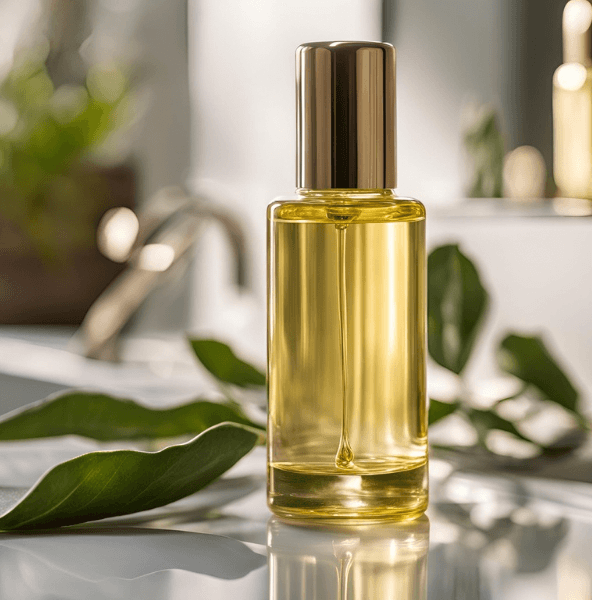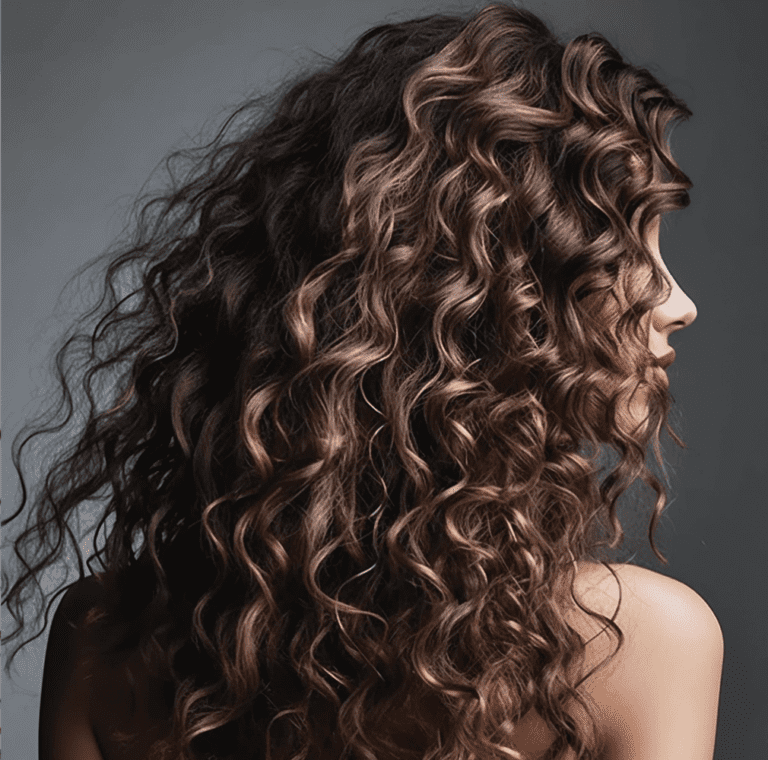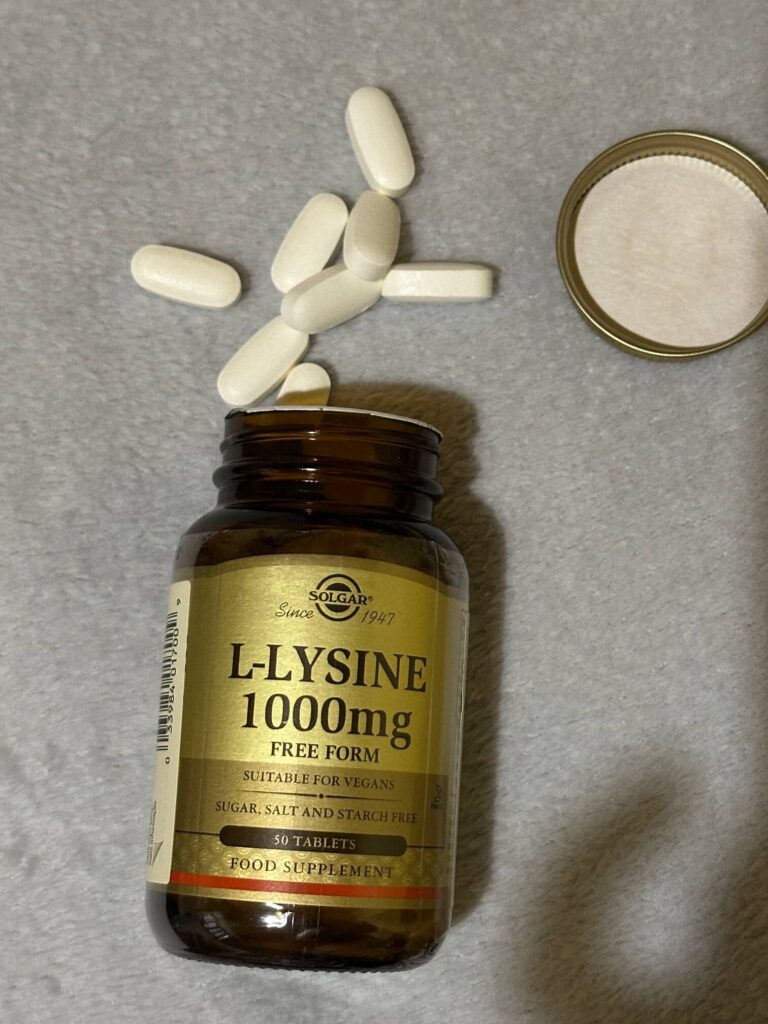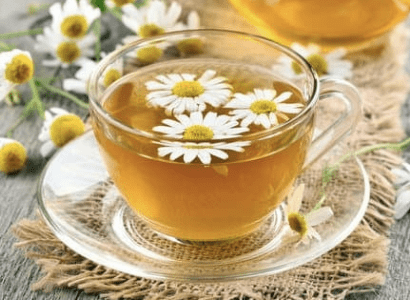The Miswak Stick: Nature’s Gift to Oral Health
Oral hygiene is an essential aspect of maintaining overall health and well-being. While modern toothbrushes and toothpaste have become the standard tools for oral care, traditional practices rooted in natural solutions continue to be relevant. One such tool that has stood the test of time is the miswak stick. Known for its profound historical, cultural, and religious significance, the miswak stick offers a sustainable and effective way to maintain oral hygiene.
In this blog post, we’ll delve into the world of the miswak stick, exploring its origins, its association with the Sunnah, the numerous benefits it offers, and why it’s still a viable alternative to modern toothbrushes and toothpaste.
This post contains affiliate links. I may earn a small commission, at no extra cost to you.
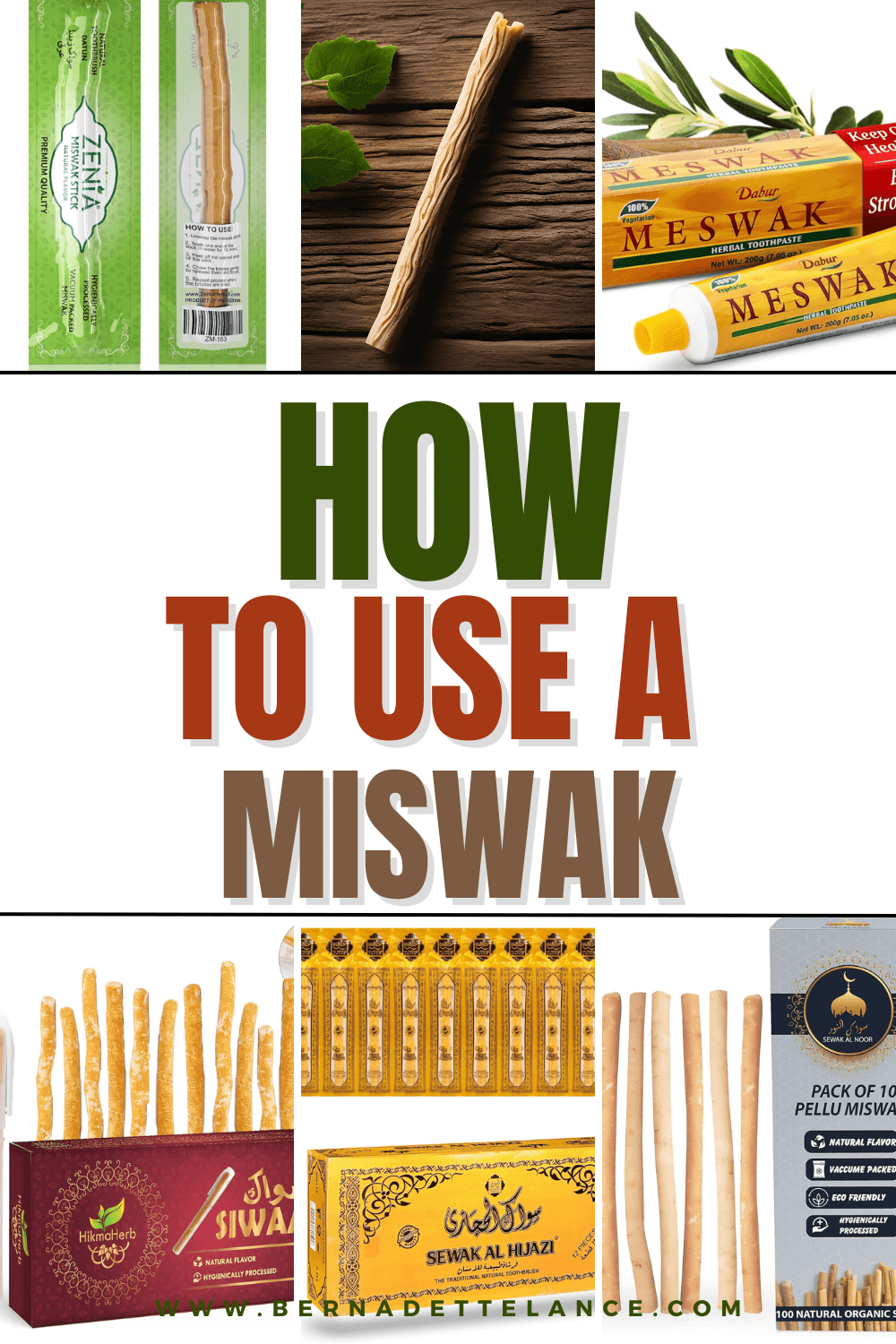
What is the Miswak Stick?
The miswak stick is a natural toothbrush made from the twigs or roots of the Salvadora persica tree, commonly known as the miswak tree or “arak” tree. This tree is native to regions in Africa, the Middle East, and parts of South Asia, where its antimicrobial and therapeutic properties have been valued for centuries. The twig’s fibrous structure makes it an effective tool for cleaning teeth, removing plaque, and promoting gum health.
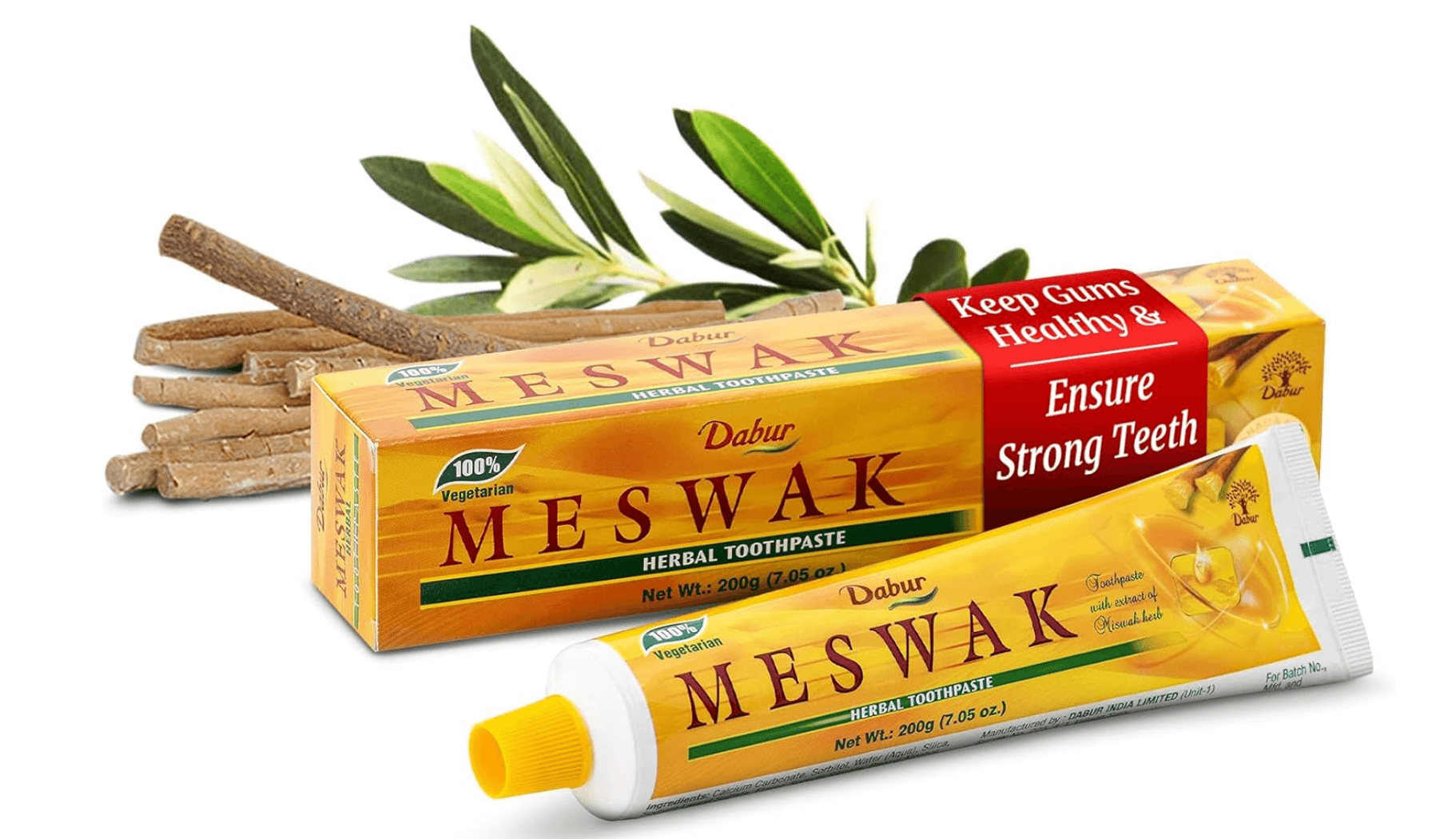
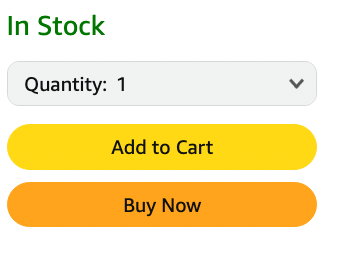
Historical and Cultural Significance
The use of the miswak stick dates back thousands of years. Archaeological evidence suggests that ancient civilizations, including the Babylonians and Egyptians, utilized twig-based dental cleaning tools. However, the miswak stick gained particular prominence within Islamic culture as it was strongly endorsed by the Prophet Muhammad (peace be upon him).
Miswak and the Sunnah
For Muslims around the world, the miswak stick is more than just a tool for oral hygiene—it is an act of worship and a way to follow the Sunnah (the teachings and practices of the Prophet Muhammad). The Prophet frequently emphasized the importance of using the miswak for maintaining cleanliness, stating:
- “Were it not that I might overburden my followers, I would have ordered them to use the miswak before every prayer.” (Bukhari)
This practice not only highlights the religious significance of the miswak sunnah but also underscores the importance of oral hygiene in Islam. By using the miswak, Muslims not only take care of their teeth but also revive a noble tradition that connects them to their faith.
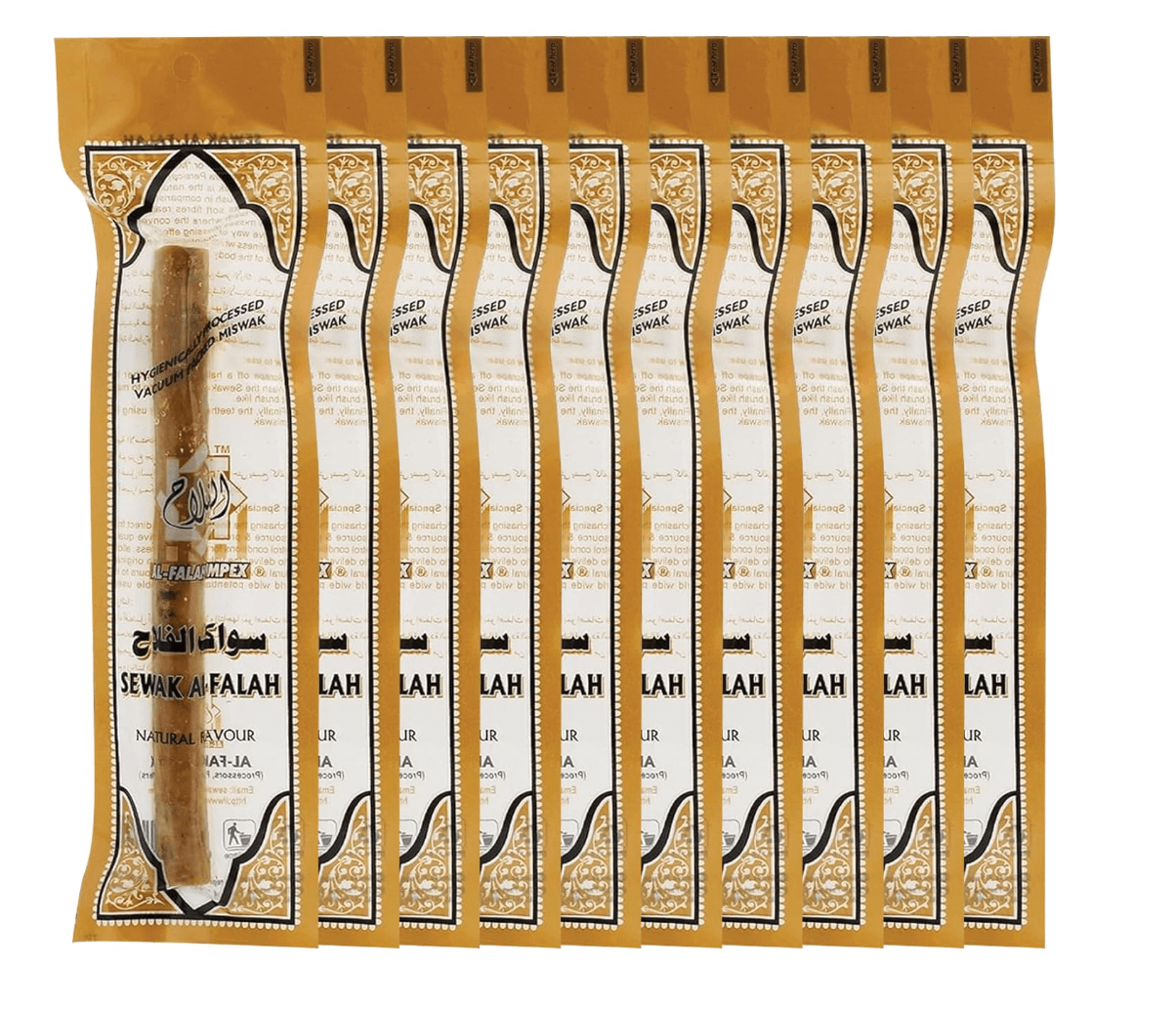

Miswak Stick Benefits
The benefits of the miswak stick extend far beyond its cultural and religious significance. Modern science has validated many of the traditional claims about the miswak’s effectiveness, making it a practical choice for oral hygiene. Here’s a detailed look at its benefits:
1. Natural Antimicrobial Properties
The Salvadora persica tree contains natural antimicrobial agents that combat bacteria responsible for plaque buildup, gum disease, and bad breath. Using the miswak stick regularly can help reduce the risk of cavities and oral infections.
2. Plaque Removal and Teeth Whitening
The fibrous structure of the miswak stick is highly effective at removing plaque and surface stains, resulting in cleaner and whiter teeth. It serves as an excellent natural alternative to chemical-based whitening treatments.
3. Promotes Gum Health
The gentle yet effective action of the miswak’s fibers massages the gums, improving blood circulation and reducing inflammation. This helps prevent conditions like gingivitis and other gum-related issues.
4. Freshens Breath Naturally
One of the most immediate benefits of the miswak stick is its ability to freshen breath. Its natural compounds help eliminate odor-causing bacteria, leaving the mouth feeling clean and refreshed.
5. Chemical-Free Oral Care
Unlike commercial toothpaste and toothbrushes that may contain artificial chemicals, the miswak stick is completely natural. This makes it a safer and eco-friendly option for individuals seeking a chemical-free oral hygiene routine.
6. Compact and Convenient
The miswak stick is portable and easy to use, requiring no water or toothpaste. This makes it an ideal choice for travelers, hikers, and anyone looking for a convenient oral hygiene solution on the go.
7. Eco-Friendly and Sustainable
In an age of environmental consciousness, the miswak stick stands out as a sustainable alternative to plastic toothbrushes and toothpaste tubes that contribute to global waste. By choosing the miswak, you reduce your ecological footprint.
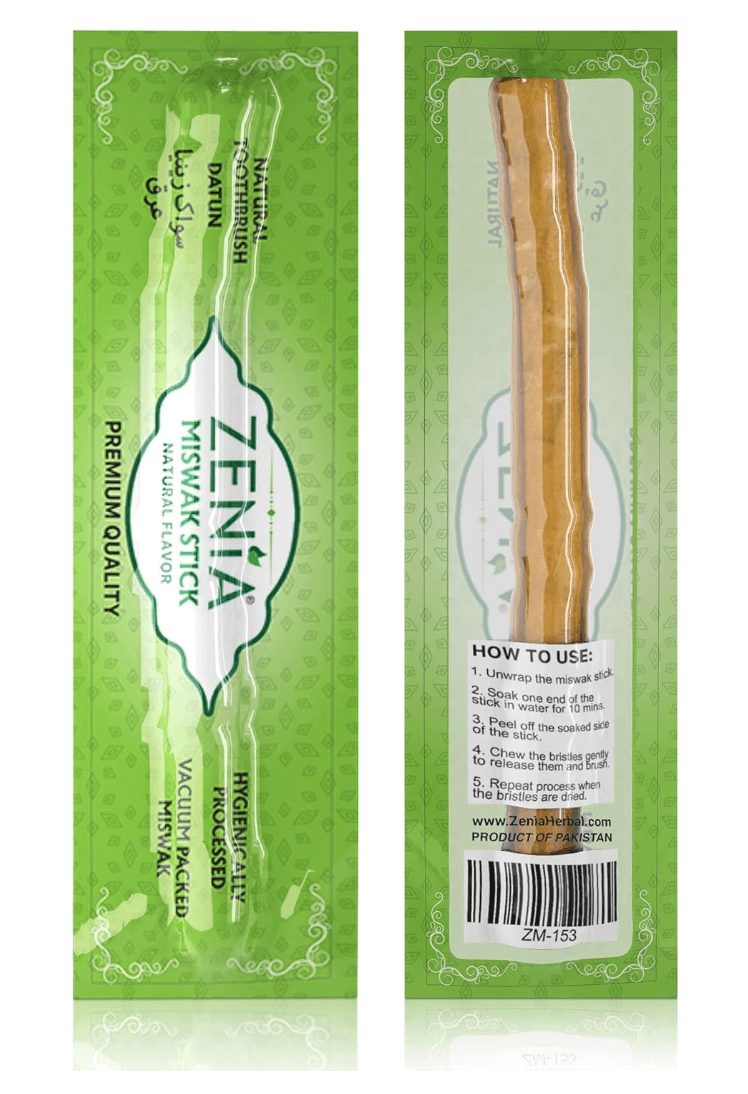

Miswak vs. Modern Toothbrushes and Toothpaste
While the miswak stick is a remarkable tool, many wonder how it compares to modern oral care products. Here’s a comparative look:
| Feature | Miswak Stick | Modern Toothbrush and Toothpaste |
|---|---|---|
| Material | Natural twig from Salvadora persica | Synthetic plastic and chemical-based paste |
| Antibacterial Action | Contains natural antimicrobials | Relies on fluoride and additives |
| Portability | Highly portable, no water needed | Requires water and toothpaste |
| Eco-Friendliness | 100% biodegradable | Often non-biodegradable |
| Effectiveness | Cleans teeth and gums effectively | Equally effective but depends on quality |
| Cost | Inexpensive and long-lasting | Can be costly over time |
The miswak stick proves to be a simple, affordable, and environmentally conscious alternative while still delivering comparable benefits to modern dental tools.
How to Use the Miswak Stick
Using the miswak stick is simple and requires no prior experience. Here’s a step-by-step guide:
- Prepare the Stick: Cut off about half an inch of the stick’s bark to expose the inner fibers.
- Soften the Fibers: Chew the exposed end gently until it forms bristle-like fibers.
- Brush Your Teeth: Use the bristled end to clean your teeth in a circular motion. Focus on all surfaces of the teeth and gums.
- Trim Regularly: Once the bristles become worn, trim the end and repeat the process.
- Store Properly: Keep the stick in a clean, dry place when not in use.
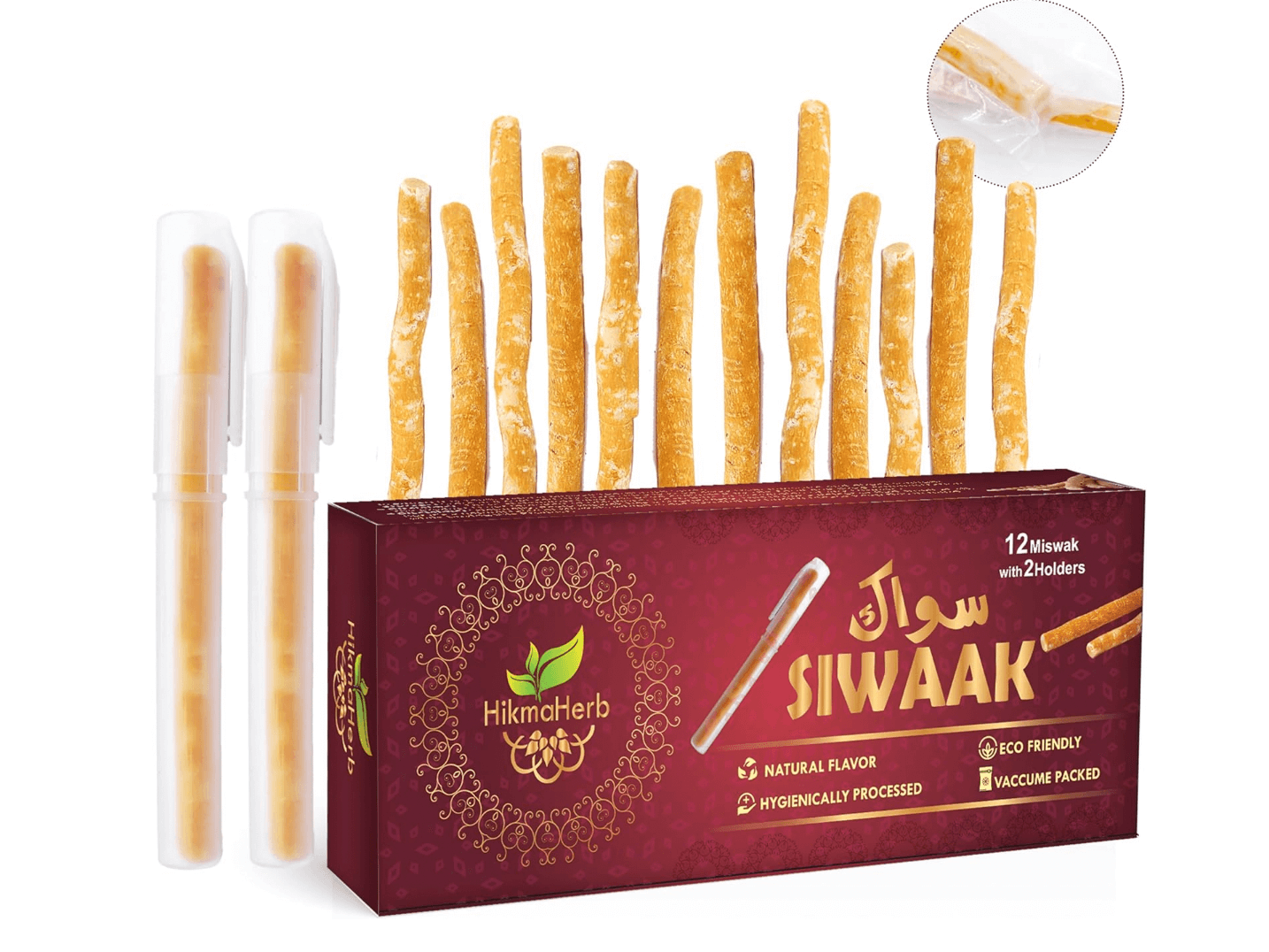

Miswak Toothpaste: A Modern Twist
For those who prefer a more conventional approach, miswak toothpaste is a fantastic innovation. Combining the natural goodness of Salvadora persica with the convenience of modern toothpaste, miswak toothpaste offers an easy way to integrate the benefits of the miswak tree into your daily routine. It’s ideal for individuals who may not have access to a traditional miswak stick or want to complement their brushing habits with toothpaste.
Where to Find Miswak Sticks
With growing awareness of natural and sustainable oral care, the miswak stick is now widely available online and in specialty stores. When purchasing, ensure the stick is sourced from authentic Salvadora persica trees to maximize its benefits.
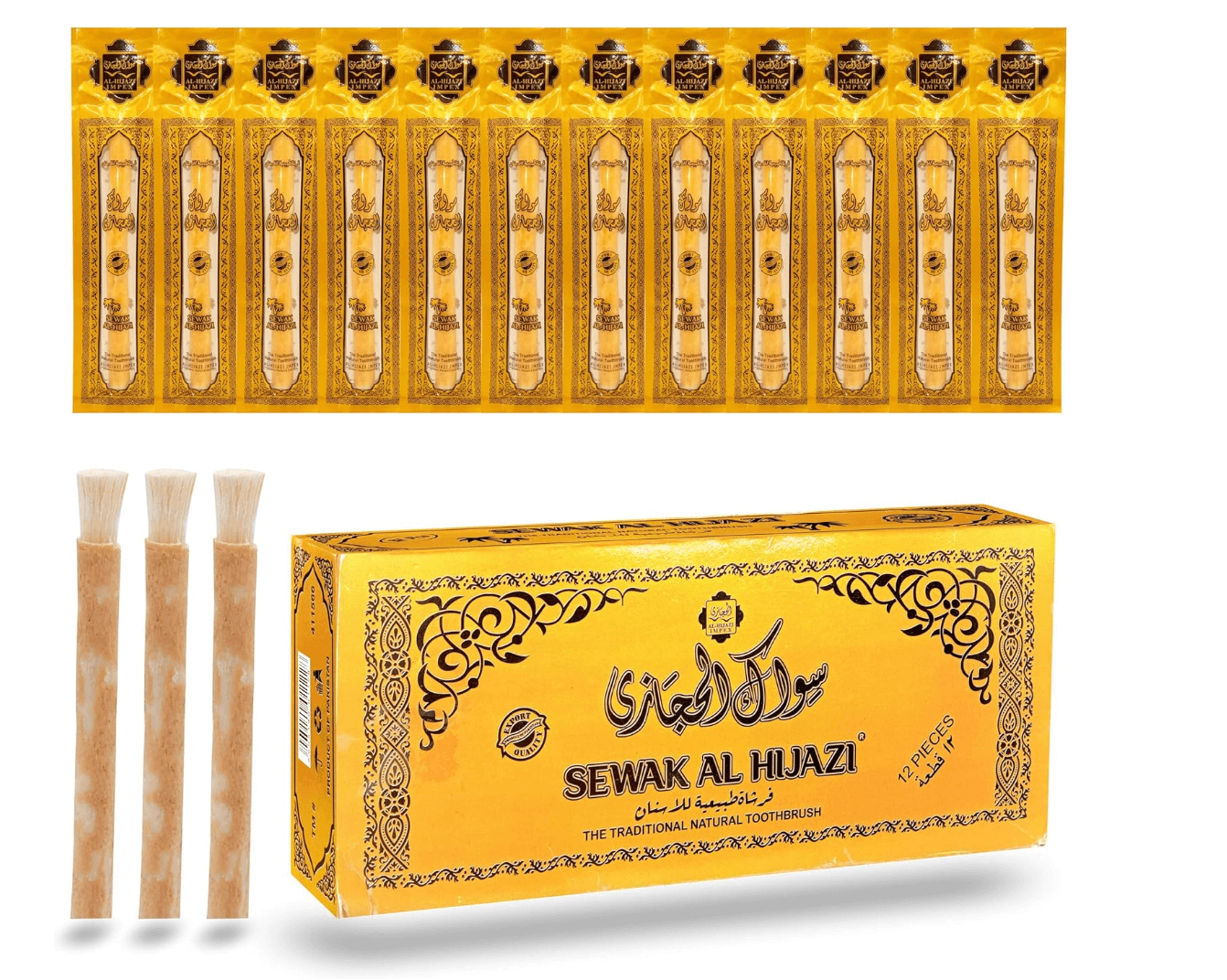

Miswak Stick: A Global Tradition
The miswak stick transcends geography and cultures, symbolizing the human quest for health and cleanliness. While its roots lie in the Middle East and Africa, its use has spread globally due to migration, trade, and the growing trend toward natural products.
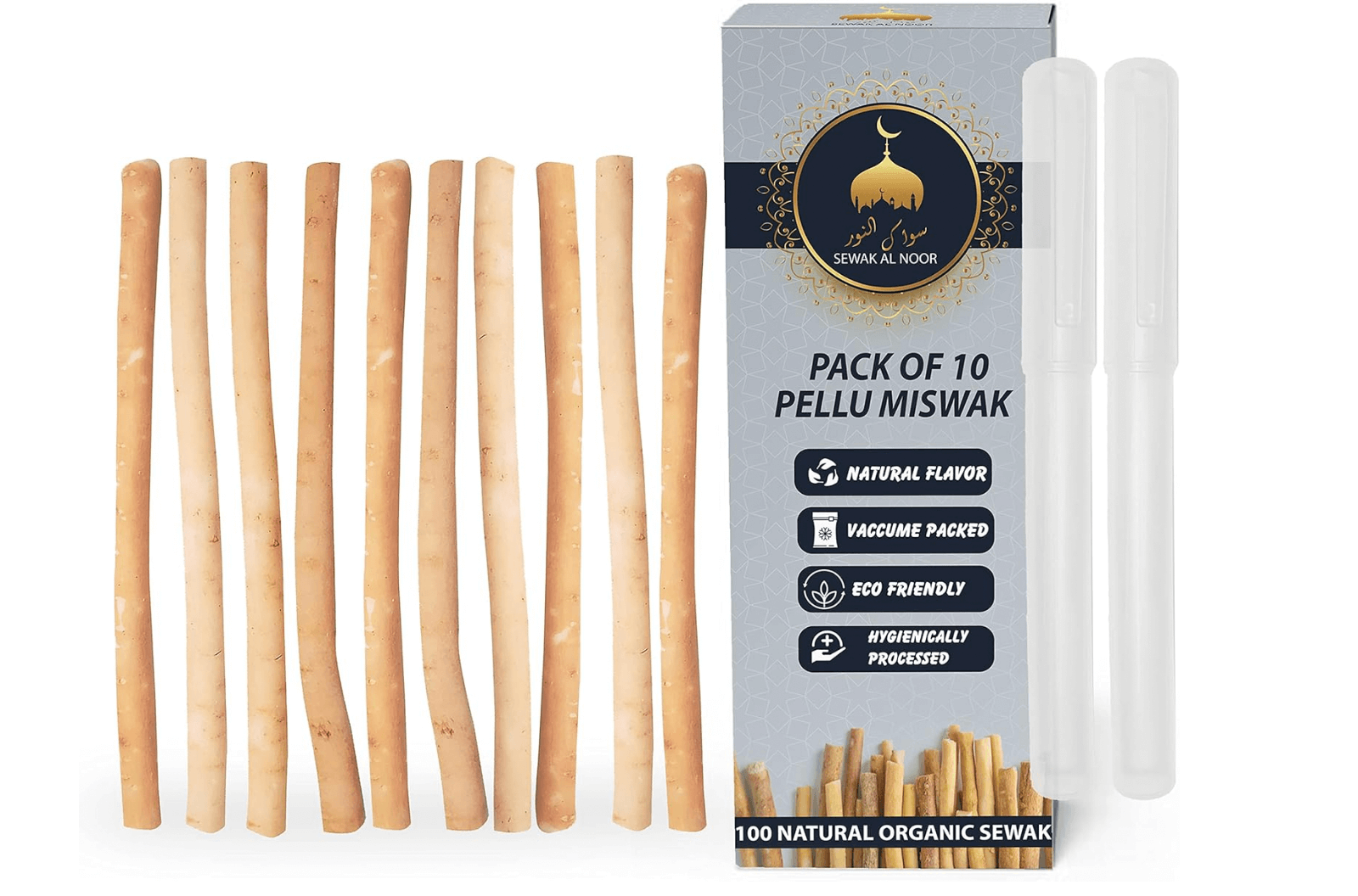

Miswak in Different Cultures
- Middle Eastern Tradition: The miswak sunnah remains a daily practice for many Muslims in the Middle East, where using the miswak is seen as both a religious act and a practical method of oral care.
- African Communities: In Africa, the miswak tree is revered for its medicinal properties. Apart from oral care, parts of the tree are used for treating wounds and digestive issues.
- South Asian Practices: In South Asia, especially in rural areas, miswak sticks are a common sight. They are used not only for personal hygiene but also as an affordable alternative for communities with limited access to modern dental care.
- Western Revival: The miswak has seen a resurgence in Western countries among those seeking eco-friendly and chemical-free products. Health-conscious consumers appreciate its simplicity and effectiveness.
Scientific Validation of the Miswak Stick
While the miswak stick has been used for centuries, modern science has taken a keen interest in understanding its benefits. Several studies have confirmed its effectiveness as an oral hygiene tool.
Key Findings from Scientific Studies
- Antibacterial Effects: Research published in the Journal of Ethnopharmacology highlights the miswak’s ability to combat harmful bacteria like Streptococcus mutans, which are responsible for cavities and gum disease.
- Plaque Reduction: A study conducted by the World Health Organization (WHO) found that regular use of the miswak is as effective, if not more, than modern toothbrushes in reducing plaque and preventing gingivitis.
- Fluoride Source: The Salvadora persica tree contains natural fluoride, a compound known for strengthening enamel and preventing tooth decay.
- Anti-inflammatory Properties: The miswak’s natural compounds, including silica and tannins, help reduce gum inflammation and improve overall oral health.
- Cost-Effective Oral Care: For low-income communities, the miswak stick offers an affordable solution without compromising on effectiveness.
Miswak Stick Benefits in Detail
To expand on its unique advantages, let’s examine why the miswak stick stands out in comparison to other oral hygiene methods:
Natural Components of the Miswak Tree
- Tannins: Strengthen gums and prevent inflammation.
- Silica: Acts as a natural abrasive, polishing teeth and removing stains.
- Essential Oils: Provide a refreshing aroma, naturally deodorizing the mouth.
- Alkaloids: Fight oral bacteria and fungi, protecting against infections.
- Vitamin C: Supports overall oral tissue health.
Holistic Health Benefits
- Improved Digestion: Chewing on the miswak stick not only cleans teeth but stimulates saliva production, aiding digestion.
- Reduced Risk of Systemic Diseases: By improving oral hygiene, the miswak indirectly reduces the risk of diseases like heart disease, which are linked to poor oral health.
How to Incorporate Miswak Into Modern Lifestyles
Integrating the miswak stick into daily routines can be seamless, regardless of how advanced or simple your oral hygiene habits are. Here’s how to make it work for you:
Combine Miswak with Modern Tools
- Use the miswak stick during the day and a conventional toothbrush at night for a balanced approach.
- Pair the miswak stick with miswak toothpaste to enhance its benefits while enjoying the convenience of modern toothpaste.
Make It a Travel Essential
- Compact and water-free, the miswak is perfect for camping trips, long flights, or road trips.
- Its portability allows you to maintain oral hygiene even in situations where traditional tools are unavailable.
Incorporate It Into a Sustainable Lifestyle
- Replace plastic toothbrushes with the biodegradable miswak stick to reduce your carbon footprint.
- Encourage your family to adopt eco-friendly practices by introducing them to the miswak.
Create a Daily Habit
- Use the miswak stick after meals for quick and effective cleaning.
- Store it in an easily accessible place as a reminder to use it regularly.
Miswak in Modern Health Trends
As health and wellness trends shift toward natural and organic solutions, the miswak stick has gained popularity among advocates of minimalism and sustainability. Social media influencers and health bloggers often highlight its:
- Zero Waste Appeal: The miswak stick decomposes naturally, unlike synthetic brushes that take years to break down.
- Affordability: Compared to recurring costs of toothbrushes and toothpaste, the miswak is a one-time, budget-friendly purchase.
- Cultural Connection: For many, using the miswak is a way to reconnect with their heritage or explore a new cultural practice.
Addressing Common Questions About Miswak
Is Miswak Effective Without Toothpaste?
Absolutely! The natural compounds in the miswak tree serve as a built-in toothpaste, providing antibacterial, whitening, and freshening properties.
How Long Does a Miswak Stick Last?
A single miswak stick can last several weeks to a month, depending on usage and maintenance. Regular trimming of the bristles extends its usability.
Can Children Use Miswak?
Yes, children can use the miswak stick under supervision. It’s a great way to instill good oral hygiene habits early on while exposing them to eco-friendly practices.
Beyond Oral Care: The Broader Impact of the Miswak Stick
Environmental Benefits
By switching to the miswak stick, you contribute to reducing plastic waste from toothbrushes and toothpaste tubes. This small change can have a significant environmental impact if adopted widely.
Reviving Traditional Knowledge
The resurgence of the miswak stick symbolizes a return to natural remedies and a celebration of ancient wisdom. It bridges the gap between traditional practices and modern needs.
Building Mindful Habits
Using the miswak requires mindfulness—it slows you down, making you more aware of your oral care routine. This simple act can be a form of self-care and intentional living.
Conclusion: The Timeless Wisdom of the Miswak Stick
The miswak stick is a remarkable tool that combines tradition, science, and sustainability. Its benefits, from promoting oral health to reducing environmental impact, make it a valuable addition to any lifestyle. Whether you’re inspired by the miswak sunnah, intrigued by its natural properties, or motivated to adopt eco-friendly practices, the miswak is a small yet powerful choice.
As we navigate a world of synthetic products and disposable culture, the miswak stick reminds us of the enduring wisdom of nature. So, why not give this ancient toothbrush a try? Embrace the simplicity, experience the miswak benefits, and enjoy a cleaner, healthier smile—all while honoring a tradition that has lasted for centuries.
